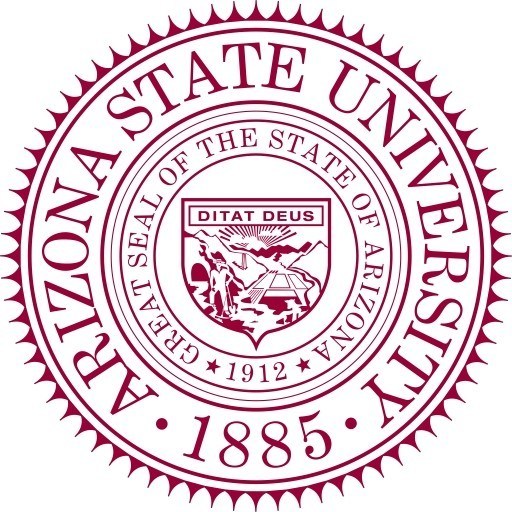Photos of university / #applyncstate
The Bachelor of Arts in Religious Studies at North Carolina State University offers students a comprehensive exploration of the diverse religious traditions, beliefs, practices, and histories that have shaped human societies throughout history. This interdisciplinary program aims to provide students with a deep understanding of the religious phenomena across different cultures and periods, fostering critical thinking, analytical skills, and cultural awareness. Through coursework that combines history, philosophy, anthropology, and literature, students examine major world religions such as Christianity, Islam, Hinduism, Buddhism, Judaism, and Indigenous spiritualities, as well as lesser-known and emerging faith traditions. The program emphasizes the importance of understanding religion in its social, political, and cultural contexts, encouraging students to analyze the impact of religion on contemporary issues such as ethics, social justice, politics, and global conflicts.
Students enrolled in the program have the opportunity to engage in rigorous coursework, participate in discussion-based classes, and undertake research projects that deepen their understanding of complex religious ideas and practices. The curriculum is designed to develop skills in critical reading, writing, and oral presentation, preparing graduates for careers in education, community service, non-profit organizations, policy analysis, and other fields where intercultural competence and ethical understanding are vital. Additionally, students can participate in related internships, study abroad programs, and community outreach initiatives to gain practical experience and broaden their perspectives.
NC State’s Department of Religious Studies also encourages students to explore contemporary issues facing religious communities today, such as secularism, religious pluralism, and the role of religion in social justice movements. The program promotes an inclusive, respectful approach to understanding different beliefs and perspectives, fostering an environment of academic integrity and open dialogue. Graduates of the program are equipped with the knowledge and skills necessary to engage thoughtfully with religious diversity and contribute meaningfully to a more understanding and interconnected world.
The major in Religious Studies consists of thirty (30) credit hours. The courses must include:
- REL 200 (3 credit hours);
- 3 credit hours in Non-Western Religious Traditions
- 3 credit hours in Western Religious Traditions
- 3 credit hours in Textual Methods
- 3 credit hours in Historical Methods
- 3 credit hours in Critical/Theoretical Methods
- 9 credit hours of advanced Religious Studies classes
- 3 credit hours of Religious Studies electives
If you are a current NC State student and you wish to change your major to Religious Studies or to add a second major in Religious Studies, you will need to submit an online intra-campus transfer application using the Change of Degree Application (CODA) system.
- Electronic applications will be reviewed immediately after each of the application deadlines: September 15, February 15, May 15 and July 1.
- Students who have completed at least 12 credit hours at NC State with an overall GPA of 3.0 or higher will be accepted automatically.
- Students who have completed at least 12 credit hours at NC State with an overall GPA between 2.0 and 2.99 are subject to individual review. It is recommended that these students complete at least one religious studies course with a grade of B- or better before applying.
Want to improve your English level for admission?
Prepare for the program requirements with English Online by the British Council.
- ✔️ Flexible study schedule
- ✔️ Experienced teachers
- ✔️ Certificate upon completion
📘 Recommended for students with an IELTS level of 6.0 or below.
The Religious Studies program at North Carolina State University offers diverse financing options to support students throughout their academic journey. Tuition costs vary depending on residency status; in-state students benefit from more affordable tuition rates compared to out-of-state students. Undergraduate in-state students typically pay less than out-of-state students, with current estimates around $9,095 per year for in-state residents and approximately $35,000 for out-of-state students. Graduate students enrolled in related programs may have different tuition rates, often based on credit hours and specific department policies.
Financial aid options for students include federal and state grants, scholarships, loan programs, and work-study opportunities. The Free Application for Federal Student Aid (FAFSA) is a required step for eligibility assessment for federal aid, including the Pell Grant, Federal Supplemental Educational Opportunity Grant (FSEOG), and Direct Student Loans. The university also offers institutional scholarships based on academic merit, financial need, or specific criteria related to the student's background or intended area of study. These scholarships may be competitive and require separate application processes, often due in early spring for the upcoming academic year.
Graduate students pursuing a degree in Religious Studies may also find funding through assistantship positions, such as teaching assistants or research assistants, which provide a stipend and sometimes tuition remission. External scholarships and fellowships from religious and academic organizations can also supplement funding sources, and students are encouraged to explore opportunities through professional associations related to religious studies.
Payment plans are typically available to help manage tuition fees, allowing students to spread payments over several installments during the semester. The university also provides information about loan options, including federal student loans, which require a FAFSA application and completion of entrance counseling.
For students facing financial hardship, the university’s Office of Scholarships and Financial Aid offers advising and support services to help identify potential funding sources and navigate the application process. It is recommended for students to start planning early by reviewing eligibility criteria and application deadlines for scholarships, grants, and loans to maximize their financing options and reduce the financial burden of their Religious Studies degree.
Overall, North Carolina State University provides comprehensive financing opportunities tailored to meet the needs of diverse student populations, enabling students to focus on their academic and spiritual pursuits without undue financial stress.
The Bachelor of Arts in Religious Studies at North Carolina State University offers students an in-depth exploration of diverse religious beliefs, practices, histories, texts, and cultural impacts across the globe. This interdisciplinary program emphasizes critical thinking, analytical skills, and cultural awareness, preparing students for various careers in education, public service, non-profit organizations, or further academic pursuits. Students enrolled in this program engage with a wide range of topics including the study of major world religions such as Christianity, Islam, Hinduism, Buddhism, Judaism, and indigenous spiritual traditions. The curriculum often includes courses in religious texts, ethics, philosophy, and the role of religion in society and politics. Additionally, students have opportunities to explore the social dimensions of religion, religious art and symbolism, and contemporary religious movements.
The program encourages experiential learning through fieldwork, internships, and study abroad opportunities, enabling students to gain practical understanding and firsthand experience of religious communities and practices. Faculty members typically have diverse research interests spanning multiple religious traditions, and they utilize a variety of pedagogical approaches including lectures, seminars, and collaborative projects. The program also aims to foster critical engagement with religious issues, promoting respect and understanding in increasingly diverse and globalized societies. Graduates of the Religious Studies program are well-equipped for careers in education, community outreach, intercultural communication, counseling, and other fields where a deep understanding of religious diversity is invaluable. They may also pursue advanced degrees in theology, religious studies, or related disciplines.











